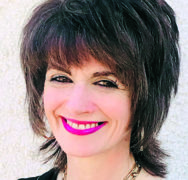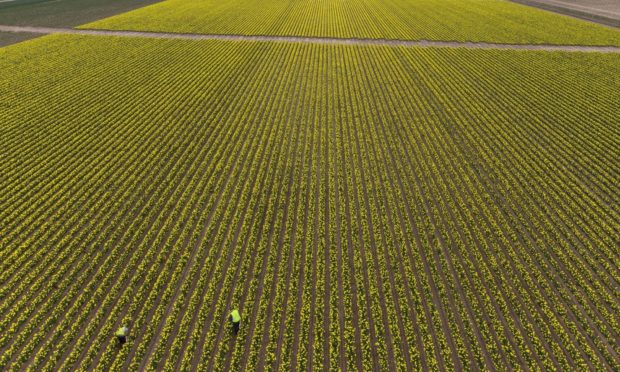Every week since the daffodils arrived in supermarkets, I have bought a bunch for the kitchen table. On cold, rainy mornings; in the shadow of evenings; in good moments and bad, the bright yellow trumpets have lit something inside me: a pilot light of hope.
This week, the fresh bunch bowed gracefully over the top of the vase, except for one. It flopped down, its damaged, slender stem bent double. I pulled it out to discard, hesitated, then experimented, replacing it using the others to prop it up. It looked perfect then, the beautiful head tall and full, its damaged stem invisible. It just needed a little support.
 Two little Syrian boys. In one photograph, they are dressed in bright, daffodil yellow and navy pyjamas with cartoon characters. Brothers. But one lived and one died. They lived in rebel held territory in the outskirts of Damascus, a city torn apart by the civil war that has blighted the lives of Syrians for the last decade. Their home was bombed by the Assad regime, reduced to rubble in which one of those little boys and his mother lay dead. The surviving boy, Yousef, had only his father left, a man who came searching in the debris of masonry for the remains of his life and found only one child, burned, scarred and close to death.
Two little Syrian boys. In one photograph, they are dressed in bright, daffodil yellow and navy pyjamas with cartoon characters. Brothers. But one lived and one died. They lived in rebel held territory in the outskirts of Damascus, a city torn apart by the civil war that has blighted the lives of Syrians for the last decade. Their home was bombed by the Assad regime, reduced to rubble in which one of those little boys and his mother lay dead. The surviving boy, Yousef, had only his father left, a man who came searching in the debris of masonry for the remains of his life and found only one child, burned, scarred and close to death.
It is strange how often life’s ugliest, most brutal moments sit alongside the most tender and giving of human instincts. Yousef is 8 years old now and living in Turkey, but the pictures of him as a two year old were heart-breaking. A male nurse held up his devastated body as Yousef was forced to walk, his face and torso a livid red from burns, his tiny arms and legs swathed in bandages, and somehow, most pitiful of all, his left foot only able to take his weight on his toes as he tottered down the hospital corridor, wailing in pain. So heart-breaking that from his home in England, one man, Rohan Karat, knew he could not forget that image. “I just felt that something had to be done.”
For the last six years, seasons have come and seasons have gone; the daffodils have bloomed and then rotted back into the earth. In all that time, Rohan Korat has fundraised in his community, sending money to Yousef’s father to help with medical bills and to enable them to build them a new life in a different country. Not just a one-off gift but a true commitment. In everything he has given: health, security, shelter, peace, there is perhaps one thing more important than the rest. “What we have given is hope,” says Rohan, “and that is something a lot of people in this world do not have.”
Rohan Karat has been prepared to take the weight in a way that is a light for all of us. “Do not forget us,” Syrians have pleaded with the world in news footage from the ravaged landscape of their country. Many of us, essentially, have. Rohan has not. Yousef’s father says Rohan Karat has cared for Yousef like he was his own child and there is a lesson in that: the world’s most vulnerable children are the responsibility of all of us, wherever need exists.
So, it was disturbing just days after hearing about Yousef’s progress to read Scottish Government statistics showing that child poverty in Scotland has risen gradually since 2010, that almost one in 4 Scottish children are currently living in poverty despite two-thirds of their households having at least one adult in employment. Whether it’s Yousef in Syria, or a Scottish child without enough to eat, the world’s children deserve more than they are getting. Rohan inspires – and perhaps shames – all of us to give more than we are giving. Not just our money but our time, out energy, our thought, our commitment.
Child poverty rising even before pandemic: new stats https://t.co/s6dE0eqegI. Thousands more children seeing parents fret over paying bills, buying food or getting into debt. But if increased (at very least doubled) new Scottish child payment means poverty targets are achievable. pic.twitter.com/Xn99pCttfp
— CPAG Scotland (@CPAGScotland) March 25, 2021
Easter always has a more sombre joy than Christmas, whether you are religious or not. It’s a celebration that arises from pain; a resurrection from crucifixion. Is that not the story of the world? Happiness and sorrow. The damaged daffodil in the vase on my kitchen table makes me smile. It seems to me like a metaphor for community. With support, everyone can stand. Those who can take most weight should do so. Those who need to lean can still contribute to the whole. There is, in all of that, a special kind of beauty, and a particular form of hope.
More from our columnists
RAB DOUGLAS: If ‘typical Scotland’ means being poised in second place after three World Cup qualifying games, I’ll take it
